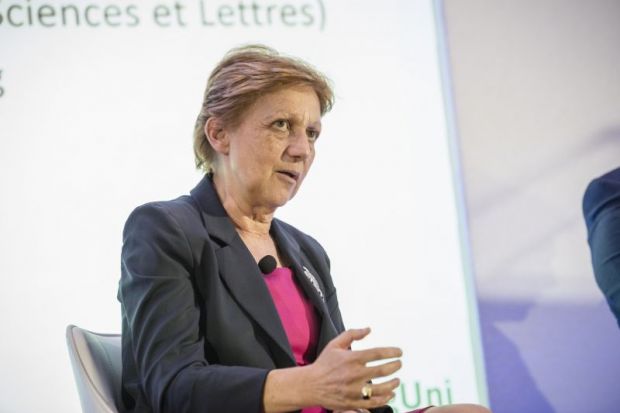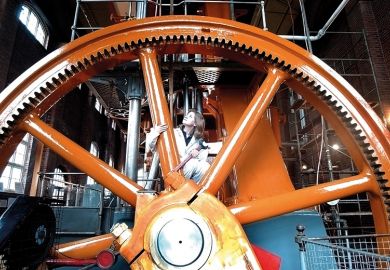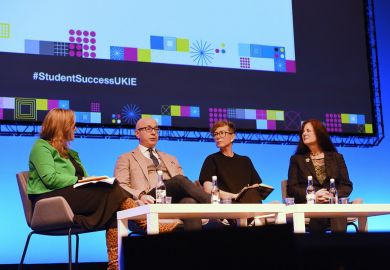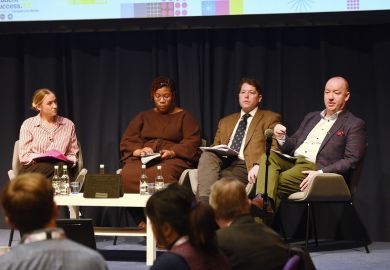The head of a new teaching-focused engineering college spun out of an alliance of three major global universities has said that lectures will be “banned” at the new institution.
Judy Raper, former deputy vice-chancellor of the University of Wollongong, also said that academics will be given the same contracts as industry experts who work with students at TEDI-London, which hopes to become a university in just a few years.
The UK-based institution is being set up by the PLuS Alliance, a collaboration between King’s College London, UNSW Sydney and Arizona State University and aims to “develop globally focused and socially aware engineers”.
One of its targets is to have gender balance among its cohort of students, given that engineering is a subject that historically has a poor record for the proportion of women studying it. The plan is to have a student body that is half domestic students, and half international learners. But there is also an aim to recruit students from other under-represented backgrounds too.
Professor Raper, who was awarded the Ada Lovelace Medal in 2018 for the most outstanding female engineer in Australia, told Times Higher Education’s Young Universities Summit, hosted by the University of Surrey, that the plan was to broaden the “diversity of engineers in the UK in particular but potentially around the world”.
“The disruption and pedagogy that is very different is a fully flexible design engineering programme that depends on the students’ ability to take responsibility for their own learning rather than their ability in maths and physics and STEM subjects,” she said.
Instead of learning theory in traditional lectures, students will take computer-based modules on campus, although traditional exams will still be used to assess their knowledge. The main focus of coursework, meanwhile, will be around practical design tasks co-organised with industry partners. Students “with the ability” will have the option of completing accelerated degrees in two years.
“Lectures will be banned. There will be tutorials and facilitated learning and students learning from each other and the academics,” Professor Raper said.
TEDI-London (The Engineering and Design Institute-London), whose campus will be part of a major regeneration of docklands at Canada Water in the city’s southeast, is also seeking to hire professional engineers to teach the students on the same basis as academics.
“We are not going to have a distinction between academic and professional staff for a start. Everybody will have an individual contract. We will have academics as mentors and coaches alongside industry people, industry engineers and others,” Professor Raper said.
She told the conference that the venture hoped to become a university in just a matter of years after gaining its own degree-awarding powers.
And she expressed a hope that their focus on teaching would still allow them to be recognised as a world-class institution.
“Do you have to do excellent research to be a highly ranked university?” Dr Raper asked, wondering whether it should make a difference “if we make an impact on the future workforce and on future industries…and society”.
simon.baker@timeshighereducation.com
Register to continue
Why register?
- Registration is free and only takes a moment
- Once registered, you can read 3 articles a month
- Sign up for our newsletter
Subscribe
Or subscribe for unlimited access to:
- Unlimited access to news, views, insights & reviews
- Digital editions
- Digital access to THE’s university and college rankings analysis
Already registered or a current subscriber?












